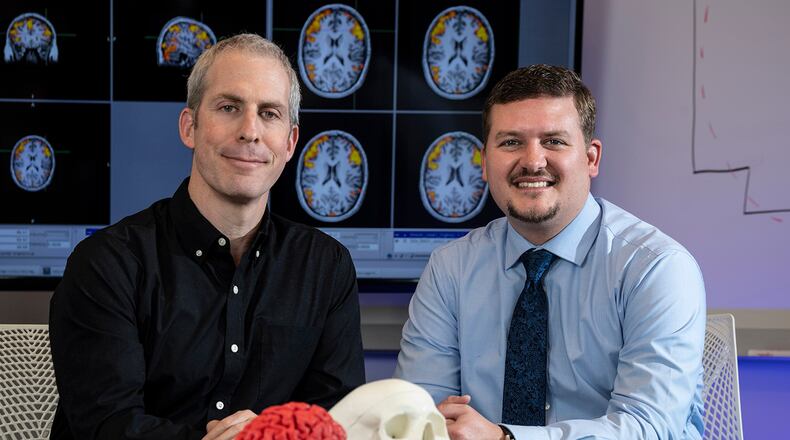The DoD provided the grant for purchase and installation of a 3 Tesla MRI scanner, to be anchored at the planned center, WSU said.
Today, researchers at Wright State and the Air Force Research Laboratory (AFRL) must pay to use off-campus MRI scanners, including a 3 Tesla MRI at Dayton Children’s Hospital, Wright State said.
The funding was provided through a competitive Defense Department program supporting academic research infrastructure, the university said.
“The long-term goal of this program is to further Wright State’s collaboration with the Department of Defense and become a leader for neuroscience research,” the university said in an announcement Tuesday morning.
“Acquisition of this MRI will provide a unique benefit to researchers across Wright State’s campus, the surrounding community and our DoD partners,” Brian Rigling, dean of Wright State’s College of Engineering and Computer Science, said in the WSU release. “Opportunities like this have only been made possible through Wright State’s close collaborations, both in research and education, with Wright-Patterson Air Force Base.”
The grant application was written by Matthew Sherwood, a research engineer in the WSU Department of Biomedical, Industrial and Human Factors Engineering, and Assaf Harel, an associate professor of psychology and a cognitive neuroscientist.
“By having the equipment here we will be able to write more grant requests and be more competitive in these requests,” said Sherwood, who will serve as executive director of the new center.
The MRI scanner will be installed in the Neuroscience Engineering Collaboration Building, a process that will take about six months.
The machine weighs about six tons and vibrates when it produces its high-intensity magnetic fields, so it will likely be placed on the ground floor.
“I am super excited about this,” Harel said. “An MRI scanner that is dedicated to research will boost neuroscience research across campus and bolster collaborations between Wright State, AFRL and other DoD and academia partners who will now have easy and affordable access to a state-of-the-art scanning facility.”
The MRI scanner will be available around the clock to Wright State researchers, including faculty and students, as well as Air Force and Navy researchers from Wright-Patterson.
The university intends to charge users a service fee, to cover operational costs.
About the Author

